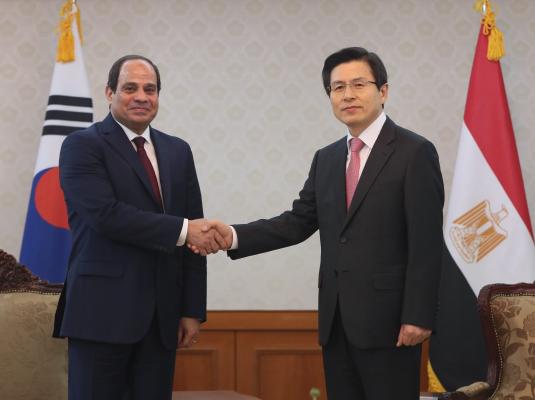Practically and metaphorically we can say that Egypt has experienced two revolutions in the past five years; the first ousted Hosni Mubarak and the second deposed Mohamed Morsi and stopped the Muslim Brotherhood from being involved in political action. The third revolution attempted and failed to achieve a new street revolution in Egypt in order to change the current regime and reinstate Brotherhood rule.
In order to start a third revolution, the Brotherhood launched the biggest media and political campaign in its history. Internationally, it worked hard to win over human rights organisations, research centres, western government institutions including the Ministries of Foreign Affairs in the European Union and the United States. The campaign succeeded and their case was featured in the news and they gained the sympathy of some international non-governmental organisations. In order to restore the “legitimacy of the Muslim Brotherhood’s rule”, forums were held and some Western governments tried to pressurise the Egyptian government to cancel the ban on the Brotherhood’s political activity but did not succeed.
Why did the third revolution fail? Because it was unable to mobilise the Egyptian street against the government and did not succeed in convincing the international community to punish it. External pressures failed to stop trials or secure pardons for any of its imprisoned leaders.
The media campaign failed despite its magnitude. New television channels were launched specifically to mobilise the street and many large channels, newspapers and websites teamed up with the new stations. Vigorous Facebook and Twitter campaigns targeted the youth and urged them to go out and instigate change, and contracts with western public relations companies were signed in solidarity with the Brotherhood against the Egyptian regime. However, despite these campaigns, they were unsuccessful.
I think that the Brotherhood knows that it is unable to bring about rapid change through the street or coups. As an ideological movement, it believes in the theory of change from the roots through education, media, culture, mosques, unions and charitable social activities. This time, however, it jumped into the battlefield and took advantage of the opportunity presented by regional differences despite the different goals.
Both the Brotherhood and regional powers made large errors in calculation. The Brotherhood’s belief that it could confront the Egyptian army and the state was a mistake. It believed that it could oust the president in the same way that Mubarak was ousted in the January 2011 revolution. This belief shows that it does not understand what really happened in January 2011. If the army had not been supportive of the operation to oust Mubarak, the revolution probably wouldn’t have been successful.
Did the Brotherhood leaders, whose role in those historic events was limited and came too late, really believe that they would be able to bring one million Egyptians out of their homes and onto the street to achieve a third revolution? Despite the stimulus, encouragement and incitement, the promised demonstrations did not take place.
They might justify their failure by saying that the security forces prevented people from descending onto the streets. However, security forces tried to prevent the demonstrators five years ago but they still protested and ousted Mubarak. It is clear that Egyptians are tired of the Brotherhood and are fed up of the chaos being spread in the region- they want to give the current government a chance.
The leaders of the Brotherhood must know the impossibility of success in the face of the Egyptian central state but felt that the existence of external Arab, regional and western support presented a rare opportunity.
I imagine that their recent failure will set them back ten years. There is no place for the Brotherhood in Arab politics unless they decide to embrace new ideas such as the abolition of the concept that it is an international organisation. This concept goes against nationalism. To be Jordanian or Kuwaiti or Yemeni or Saudi is a requirement for belonging to a modern state. The movement must also be enlightened about many social issues. Finally, the Brotherhood needs a revolution within the movement itself.
